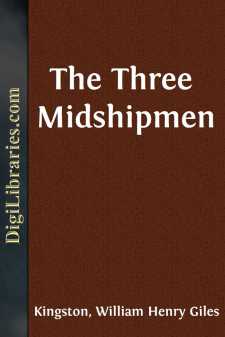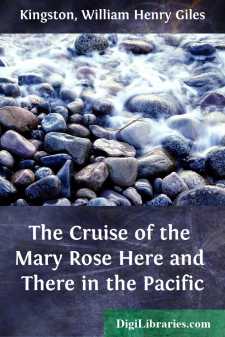Categories
- Antiques & Collectibles 13
- Architecture 36
- Art 48
- Bibles 22
- Biography & Autobiography 813
- Body, Mind & Spirit 142
- Business & Economics 28
- Children's Books 17
- Children's Fiction 14
- Computers 4
- Cooking 94
- Crafts & Hobbies 4
- Drama 346
- Education 46
- Family & Relationships 57
- Fiction 11829
- Games 19
- Gardening 17
- Health & Fitness 34
- History 1377
- House & Home 1
- Humor 147
- Juvenile Fiction 1873
- Juvenile Nonfiction 202
- Language Arts & Disciplines 88
- Law 16
- Literary Collections 686
- Literary Criticism 179
- Mathematics 13
- Medical 41
- Music 40
- Nature 179
- Non-Classifiable 1768
- Performing Arts 7
- Periodicals 1453
- Philosophy 64
- Photography 2
- Poetry 896
- Political Science 203
- Psychology 42
- Reference 154
- Religion 513
- Science 126
- Self-Help 84
- Social Science 81
- Sports & Recreation 34
- Study Aids 3
- Technology & Engineering 59
- Transportation 23
- Travel 463
- True Crime 29
The Missing Ship The Log of the "Ouzel" Galley
Categories:
Description:
Excerpt
The master of the Ouzel Galley—His son and daughter—The first mate—A calm—A gale springs up—A raft seen—Owen rescues its occupant—Dan, and Pompey, the black cook—Surmises about the stranger—The gale ceases—The stranger appears on deck and gives an account of himself—Gives first news of war between England and France—Lancelot Carnegan becomes second mate of the Ouzel Galley.
“No sign of a breeze yet, Owen?” asked Captain Tracy, as he lay in his cot, slung in the state-room of the Ouzel Galley, West India trader, of which stout bark he was the commander. His fair daughter Norah sat by his side fanning his pale cheek—for he, like several of his crew, had been struck down by fever, and he probably owed his life to her watchful care. For many days the vessel had lain becalmed on the glassy ocean under a tropical sun, the excessive heat tending greatly to increase the sickness on board, three of the crew, besides the second mate, having already succumbed to it. Day after day the survivors had been anxiously looking out for the wind to fill the sluggish sails hanging down against the masts; but each morning they had seen the fiery sun rise out of the calm ocean and pass across the blue vault of heaven, to sink again beneath the horizon, suffusing with a ruddy glow the whole western sky. The night brought relief from the heat, and hope revived; but when morning returned, again the suffering crew had to endure the scorching rays of the sun, from which even the shade cast by the sails afforded them but inadequate shelter. The chips from the carpenter’s bench which had been thrown overboard still lay alongside; while the creaking of the yards and blocks, and the slight splashing sound as the vessel moved from side to side by the now scarcely perceptible undulations of the broad Atlantic, alone broke the silence which, reigned over the watery expanse on which she floated. Norah—a fair and beautiful girl, who, though scarcely sixteen summers had passed over her head, had already the appearance, and what was to her of the greatest consequence, the calm resolution of more mature age—stopping for a moment in her employment, looked up with an inquiring glance from her blue eyes towards the first mate, who had just then, hat in hand, entered the cabin.
“A bank of clouds has just appeared above the horizon in the sou’-west, sir, and from the rapid way in which it is rising we shall, if I mistake not, have the wind before long, and as much as we want of it,” he replied.
“Thank Heaven!” ejaculated the captain. “See all ready for shortening sail. I must try to come on deck, for we are sadly short-handed.”
“Oh! don’t attempt it, father,” said Norah; “you have scarcely strength to stand, and Mr Massey and the crew will do all that is necessary.”
“Miss Norah is right, sir—stay where you are,” said the mate. “I am inclined to furl everything at once, so as to be prepared for the wind when it reaches us; it is near the hurricane season in the West Indies, and they are sometimes felt as far to the eastward as this. Should the wind not prove as strong as I expect, we can easily make sail again.”
“Do as you propose, Owen,” said the captain; “you are always careful and prudent.”
“Ay, ay, sir,” answered the mate, and he sprang quickly on deck. “All hands shorten sail!” he shouted. “Be smart, my lads, or we may have old Harry Cane aboard us before we have time to open our weather eyes.”
He knew well that a joke would tend to inspirit the downcast crew, most of whom were Irishmen—the Ouzel Galley belonging to Dublin, though trading chiefly to the fair port of Waterford....












